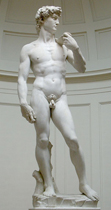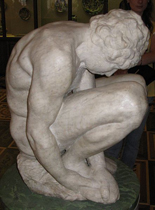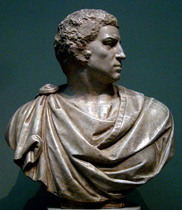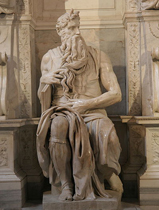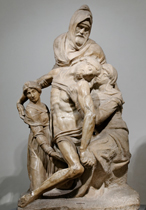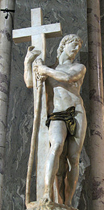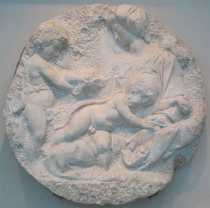
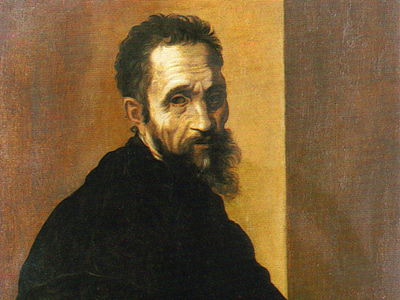
Sculptor - Michelangelo
Michelangelo di Lodovico Buonarroti Simoni was born on the 6th of March 1475, in the Republic of Florence in modern day Italy. During his childhood he learned to cut stone and at the age of 13 he was apprenticed to the painter Domenico Ghirlandaio. When he was just 15 years old he attended the Humanist academy founded by the famous de Medici family, and his career began to take off.
At the age of 21 Michelangelo headed to Rome where he received a commission for a Pietà - a sculpture showing the Virgin Mary grieving over the body of Jesus. This is a subject he returned to again in later life as his own death drew nearer.
Crouching Boy is thought to have been created for the Medici Chapel in Florence circa 1539. Today it can be found in the Hermitage Museum, St Petersburg
In a letter to his friend Giorgio Vasari, Michelangelo writes, "I have reached the twenty-fourth hour of my day, and... no project arises in my brain which has hath not the figure of death graven upon it"
This statue of Moses is strange because he is depicted with horns coming from his head! This is because of description of his face in the Latin Vulgate Bible as cornuta which means 'horned' in English
This second version was originally naked but a girdle was added some time in the following century
Ready for more?
not all...
quizzers. Try to win a coveted spot on our Hall of Fame Page.




